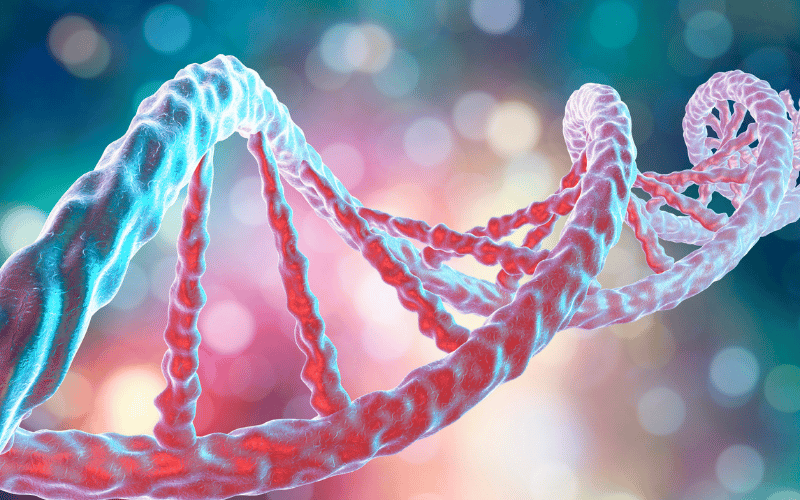Cause 8: Rare Genetic Disorders

Our genes form the very blueprint of our being, influencing everything from our eye color to our predisposition to certain diseases. When it comes to basal-cell carcinoma, certain rare genetic disorders can amplify one’s risk, making them particularly susceptible to this skin cancer type.
One of the most prominent genetic conditions linked to BCC is Basal Cell Nevus Syndrome (BCNS), also known as Gorlin Syndrome. Those with BCNS have a mutated PTCH1 gene, making them prone to develop multiple basal-cell carcinomas during their lifetime. Other associated conditions include Rombo syndrome and Brooke-Spiegler syndrome. Each of these syndromes has its own unique genetic mutation that, in turn, influences skin health and the propensity to develop BCC.
It’s not just the elevated risk of BCC that characterizes these syndromes. For instance, people with BCNS might present with jaw cysts, unique facial features, and skeletal abnormalities. These additional symptoms can sometimes act as early warning signs, prompting genetic testing and proactive skin monitoring.
For individuals with a family history suggestive of these syndromes, genetic counseling is invaluable. Understanding one’s genetic predisposition can shape preventive measures, from enhanced skin protection practices to more frequent dermatological checks. Knowledge, in this case, truly is power—offering the best defense against potential BCC development.
While rare genetic disorders account for a small fraction of BCC cases, for those affected, the implications are profound. A combination of genetic awareness, regular screenings, and proactive preventive measures can significantly alter the trajectory of these genetic predispositions. (8)